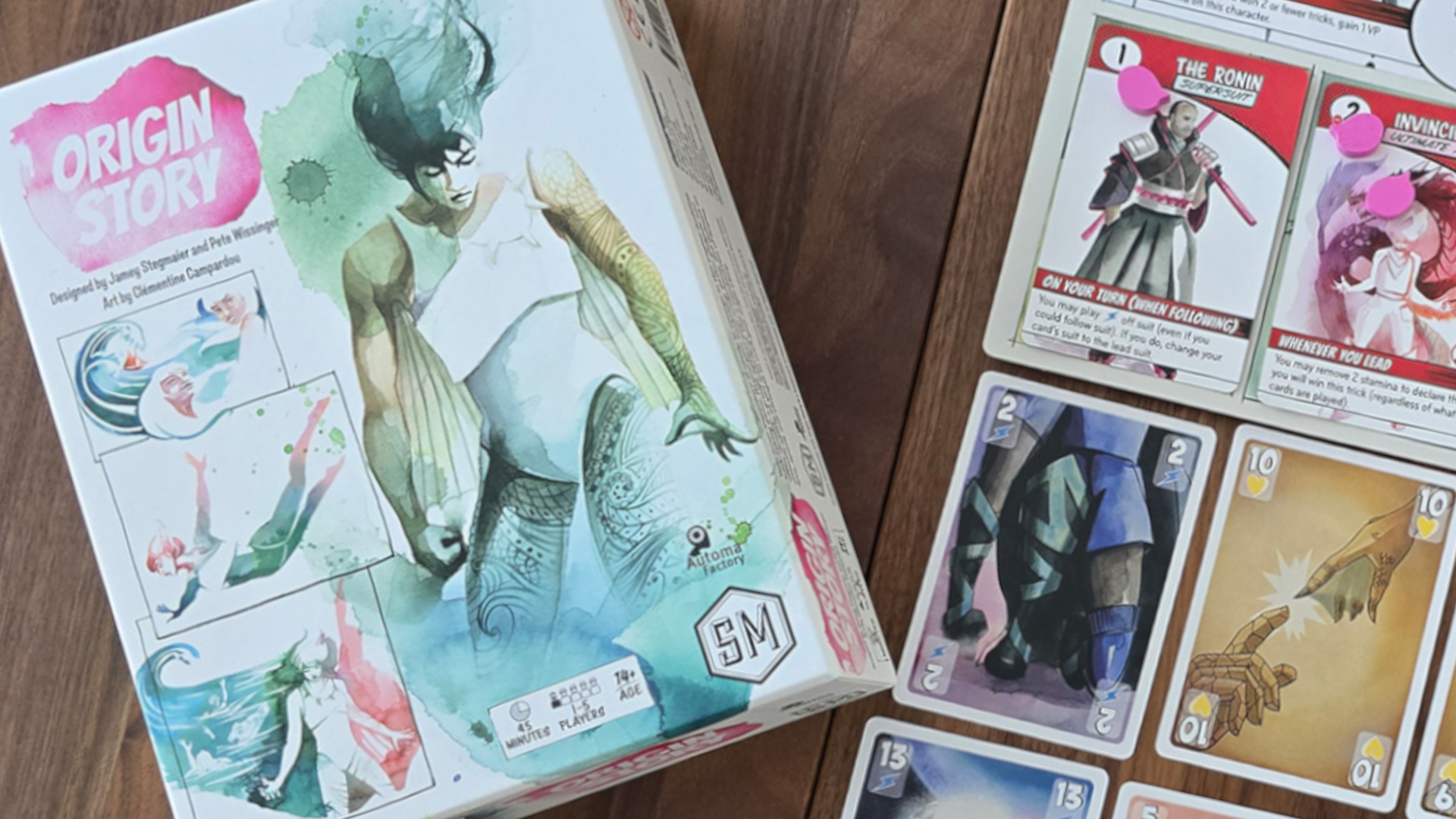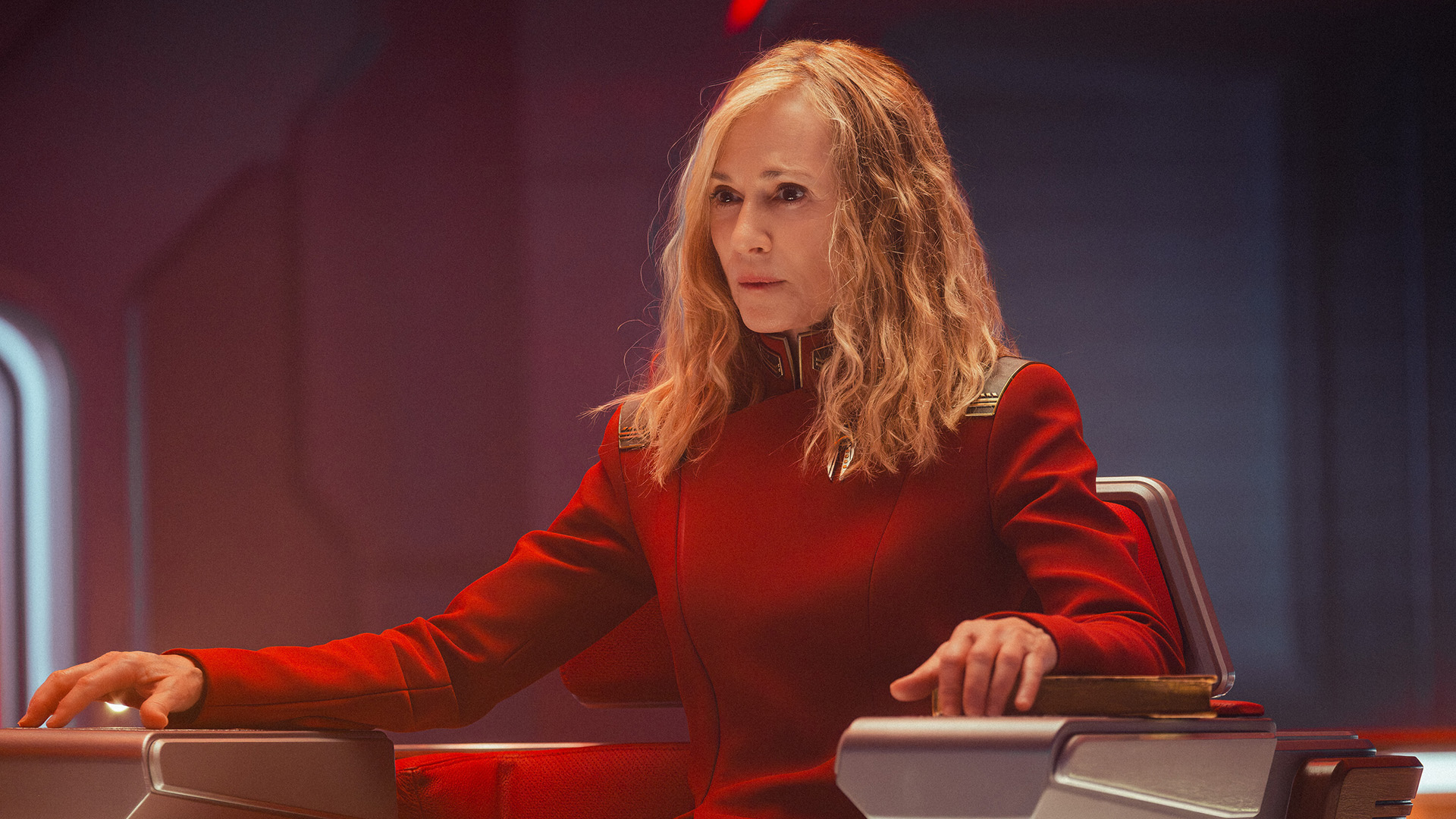Dante’s Inferno
“In the game, the player is given the choice to punish or absolve the damned, the demons and the minions of Hell. This choice isn’t just made in modal interactions with the damned, it’s made constantly in finish moves in second-to-second combat throughout the game,” explains Knight. “Over time, the more you absolve, the more you’ll contribute to a Holy bar, which in turn leads to leveling up the Holy path. At each new level, the cross becomes stronger, and new abilities and modifications open up. The same is true down the Unholy path. You can level up both paths slowly, or more quickly by choosing one path or the other.”
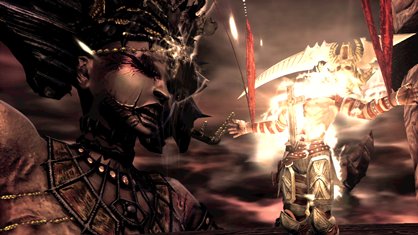
In other words, think inFamous, only with the option to be good or a jerk built in to every significant encounter. And, much like we saw in Sony’s lightning-flinging action game, you’re rewarded with extra abilities and exclusive magic attacks the more extreme your alignment becomes. Throughout the game you find relics (unique weapons), which are either Holy or Unholy. Depending on how you’re playing the game, these relics will be more or less effective – so if you’re following a righteous path, don’t expect too much from your Unholy pick-ups.
“All the different systems are tied into this overall theme of choice: to punish or to absolve. We think it fits very well with the theme of free will, which was so important to Dante Alighieri, and it gives players more options in their play style,” claims Knight. We’re not sure choosing a preferred method of slaughtering unbaptised babies with knives for arms was quite the ‘free will’ Dante Alighieri had in mind when he wrote The Divine Comedy, but it does make for an entertainingly gruesome spectacle.
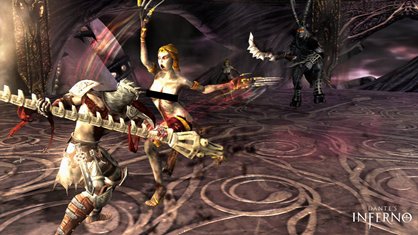
Dante in the game uses his scythe to produce the kind of finishing moves that would make even Kratos queasy. One example sees him slipping his scythe inside the body of a grotesquely fat enemy in the ‘Greed’ circle and snatching the blade back out, roughly chopping the creature in half. That’ll be an ‘Unholy’ finish, then.
However, we’ve also seen examples of ‘righteous’ finishes, where Dante presses his Holy Cross into the face of a fallen opponent and reduces them to a pile of glowing dust, presumably freeing their tormented soul. It’s all done with a Quick Time Event sequence, just like the God of War series. That seems like a bit of a disappointment considering games like Ninja Gaiden 2, and later down the line, Castlevania: Lords of Shadow have started to move away from QTEs as a resolution to epic (and occasionally not-so-epic) boss battles.
With so much violence and some downright horrific imagery in the levels (as a side note, Knight tells us that there was some material considered too nasty to appear in the final version of the game, but he won’t say what) it only seems like a matter of time before the knee-jerkers and banner-wavers start to close in on Dante’s Inferno in a big way.
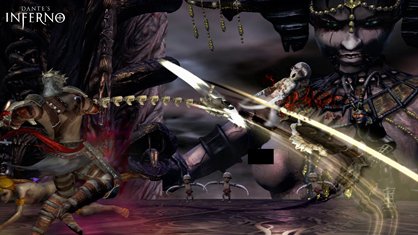
EA staged a fake Christian protest at this year’s E3 games show in LA to drum up publicity for the game, and this seems to have kept other objections at bay – presumably for fear of doing EAs work for them. Knight takes an impish view on the subject, saying: “People have had 700 years to protest against the poem, and not much has ever come from that approach. The game is an adaptation of this incredible work of fiction, and that’s just what it is: a work of fiction. It’s a fantasy about a guy fighting the demons of the afterlife, as well as his own demons, in pursuit of the love of his life. What’s not to like about that?”
Weekly digests, tales from the communities you love, and more
Nov 19, 2009
